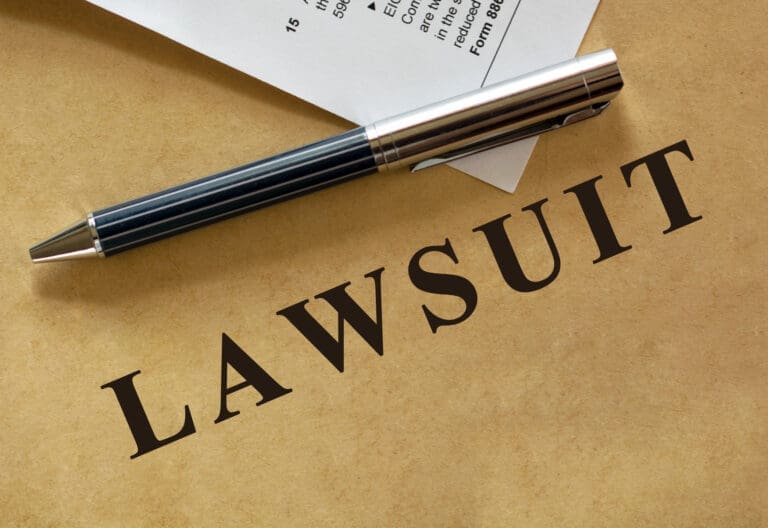
Most crucial in pharmaceuticals is understanding the legal aspects of drug development. From patent protection to FDA regulations, navigating the complexities of pharmaceutical law is paramount for companies in the industry. Delving into the intricacies of intellectual property rights and clinical trial compliance, this blog post aims to shed light on the critical legal considerations that shape the landscape of drug development.
Marco normativo
Historical Background of Pharmaceutical Law
To regulate the pharmaceutical industry, governments began implementing laws in the early 20th century to ensure safe drug production and distribution. The Pure Food and Drug Act of 1906 in the United States was a pivotal moment in pharmaceutical legislation, leading to more stringent regulations to protect public health.
Current Regulatory Bodies and Agencies
Regulatory bodies such as the Food and Drug Administration (FDA) in the United States and the European Medicines Agency (EMA) in Europe play a critical role in drug regulation. These agencies evaluate drug safety and efficacy through rigorous testing before granting marketing approval to ensure protección del consumidor.
Pharmaceutical companies must adhere to strict guidelines set by these regulatory bodies to bring new drugs to market. Failure to comply can result in penalties including fines and even product recalls, highlighting the importance of regulatory compliance in drug development.
Drug Development Process
Pre-Clinical Trials and Patent Law
Patent: One of the crucial stages in the drug development process is the pre-clinical trials, where the drug’s effectiveness and safety are tested in laboratories and on animals. This phase is also closely tied to patent law, as pharmaceutical companies often seek patents to protect their drug formulations and processes.
Clinical Trials and Informed Consent
En: The clinical trials phase is where the drug is tested on human subjects to evaluate its efficacy and safety. Informed consent is a critical aspect of these trials, ensuring that participants are fully aware of the potential risks and benefits involved in participating in the study.
Desarrollo: The process of drug development is complex and time-consuming, involving multiple stages and strict regulations to ensure the safety and efficacy of the final product. Clinical trials play a crucial role in this process, providing valuable data on how the drug performs in humans. It is important for pharmaceutical companies to prioritize ethical considerations, such as informed consent, throughout the drug development process.
Intellectual Property and Patent Law
Patent Protection for Pharmaceuticals
The field of pharmaceuticals is heavily reliant on intellectual property rights for protection. Patents play a crucial role in safeguarding the innovative drug development process by granting inventors exclusive rights to their creations for a specific period.
Trademark Law and Branding
Branding is vital in the pharmaceutical industry to establish a distinctive identity and build consumer trust. Marca protection ensures that the brand name, logo, and other indicators of origin are unique and not infringed upon by competitors.
To safeguard their intellectual property, pharmaceutical companies must navigate the complex landscape of patent and trademark laws. Trademark registration establishes ownership of branding elements, while patents protect the novel compounds and formulations that drive innovation in drug development.
Safety and Efficacy Standards
FDA Approval Process and Guidelines
Now, the FDA approval process plays a crucial role in ensuring that pharmaceuticals meet stringent safety and efficacy standards before they can be marketed and sold to the public.
Post-Marketing Surveillance and Adverse Event Reporting
With post-marketing surveillance and adverse event reporting, pharmaceutical companies are required to monitor the safety of their products once they are on the market and report any adverse events or side effects that may arise.
Adverse event reporting is imperative for identifying and addressing any unexpected or harmful effects of a drug that may not have been apparent during clinical trials. Early detection and reporting of adverse events can help prevent further harm to patients and lead to important updates in drug labeling and usage guidelines.
Conclusión
Upon reflecting on the legal aspects of drug development outlined in the article, it is evident that navigating pharmaceutical law is crucial for ensuring the safety and efficacy of new medications. Understanding the regulations and requirements set forth by governing bodies is imperative for pharmaceutical companies to bring their products to market successfully. By adhering to these legal standards, drug developers can help protect public health and advance innovation in the field of medicine.
PREGUNTAS FRECUENTES
Q: What is pharmaceutical law?
A: Pharmaceutical law refers to the set of legal regulations and guidelines that govern the development, manufacturing, distribution, and marketing of pharmaceutical drugs.
Q: What are the key legal aspects of drug development?
A: The key legal aspects of drug development include intellectual property rights, regulatory compliance, safety and efficacy standards, clinical trial regulations, marketing approvals, and post-market surveillance.
Q: Why is understanding pharmaceutical law important in drug development?
A: Understanding pharmaceutical law is important in drug development to ensure compliance with regulations, protect intellectual property, ensure patient safety, secure marketing approvals, and navigate the complex legal landscape of the pharmaceutical industry.
Type of Attorney and How to Find Them on Attorneys.Media
For legal issues related to pharmaceutical law and the legal aspects of drug development, it is essential to consult with an attorney specializing in pharmaceutical law or healthcare law. These attorneys are well-versed in the complex regulations and compliance requirements involved in bringing new drugs to market.
To find a qualified pharmaceutical law attorney, you can use the directory available on Attorneys.Media. Start by visiting the website and exploring the “Healthcare Law” or “Regulatory Compliance” categories. These sections feature profiles of attorneys who specialize in legal issues related to pharmaceuticals and drug development. Each profile provides comprehensive information about the attorney’s background, areas of expertise, and contact details.
When selecting a pharmaceutical law attorney, consider their experience in handling cases involving drug development and approval processes. Look for attorneys with a proven track record of helping pharmaceutical companies navigate the regulatory landscape and achieve successful market entry. Additionally, reading reviews and testimonials from previous clients can provide valuable insights into the attorney’s effectiveness and reliability. Abogados.Media offers a platform where you can compare different attorneys based on their qualifications and client feedback, ensuring you find a knowledgeable and experienced attorney to assist with your pharmaceutical law needs.
Attorneys.Media Video Document References
- Is Personal Injury Part of Your Law Practice?
- As an Attorney, How Are You Generating Content for Your Online Presence?
- How Can You Help Potential New Clients Get Their Questions Answered?
- How Do You Differentiate Yourself When Someone Looks Online for Help?
- How Do You Differentiate Yourself as a Criminal Defense Attorney?
- Have You Been Thinking About Video Marketing for Your Law Firm?
- Should Attorneys Use Video Marketing to Attract New Clients?
- What Do Potential Clients See When They Research Your Name Online?
- Cómo puede ayudarle Attorneys.Media








